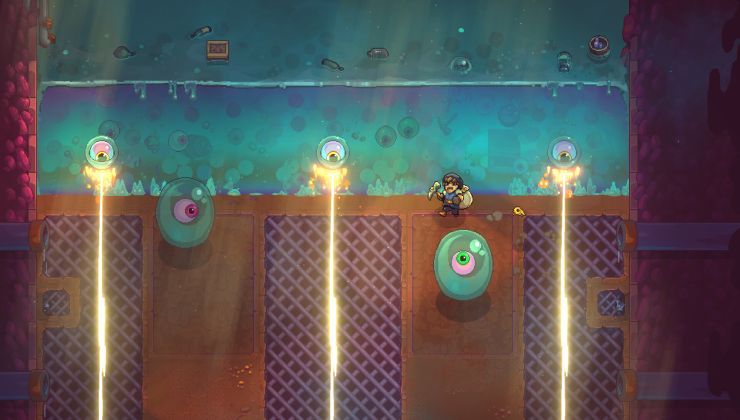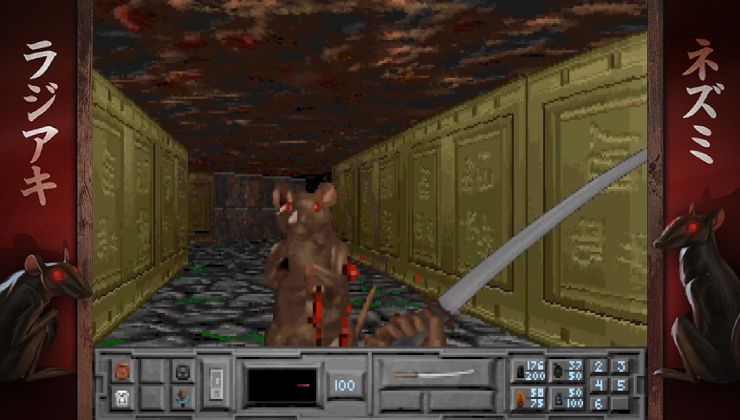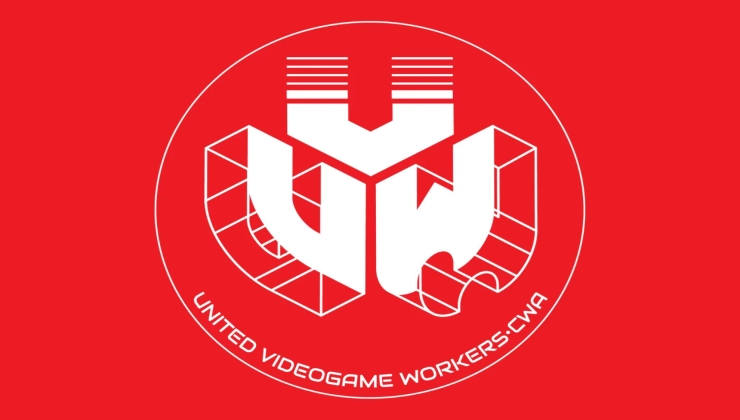Ubuntu is one of the top most used Linux distributions on the desktop and Canonical, the company behind it, has a new blog post up giving some thoughts on the future of Ubuntu Desktop.
In the post Oliver Smith, the Product Manager, goes over various details about the current status. Like how Ubuntu on the desktop has 6 million monthly active users, it's the most popular Linux distro for developers (Stack Overflow) and the most popular for gaming. The gaming side perhaps is a little debatable, as they're guesstimating based on what's inside the "Other" category on the Steam Survey. If Valve showed all versions of Ubuntu, I would imagine it easily is the biggest.
With the changing landscape Smith mentions how the Ubuntu Desktop team continues to "grow rapidly", which is a good sign for the future of it of course as clearly they're investing a lot of resources into it right now.
One thing pointed out is the new installer, which is the same one that Ubuntu Server uses. They say it could enable things like having a laptop with Ubuntu pre-installed with the ability to easily "apply customisations on first boot to create a personalised or enterprise specific installation through device enrollment".
They're also teasing something related to hardware. Noting that there's devices from Dell, HP, Lenovo, Raspberry Pi, other Arm devices and cloud devices but with Ubuntu 23.10 they're "keeping quiet" about…something. So a potential new hardware deal is to be announced at some point.
Other things coming for Ubuntu 23.10 include a modern and performant app store, the ability to customize Ubuntu desktop images, quarter-screen tiling, their partnership with Intel on hardware accelerated video encoding and decoding in the Chromium snap is now making its way to stable, investigations into providing a mechanism for users to manage additional permissions requested by apps, experiments into hardware-backed full disk encryption as an option in the Ubuntu installer, they're bringing Netplan to Ubuntu Desktop to "deliver a more unified experience for those managing Ubuntu across both server and desktop" and continued work on Ubuntu Core Desktop (an immutable version of Ubuntu - think like SteamOS and Fedora Silverblue).
It's nice to see Canonical talking up Ubuntu Desktop more!
See the full blog post for more.
"they're bringing Netplan to Ubuntu Desktop to "deliver a more unified experience for those managing Ubuntu across both server and desktop"" last time I managed Ubuntu servers I ripped out Netplan and just used systemd-networkd directly. It's just a poorly implemented wrapper around systemd-networkd configs.
Well, if they insist on taking away choice when it comes to snaps, then I feel a reduction by at least one user will come in the near future.
Same. I have been using Ubuntu for years, but I am casually in the market for a new distro, because I can't be bothered manually replacing snap-enforced applications after installation every single time. Snap/Flatpak has its use if you want to quickly download and test something, without having to worry about dependencies or security all that much - but why standard distro applications should be deployed as a snap, is a bit beyond me. Yes, I get where it's a bit more secure to run a browser in a sandbox, but it's not that Linux is all that big a target for malware at this time, and most Linux users probably know how to stay safe online.
The only problem for me is that I went through a lot of distros already, so at this point I am not even sure what to replace Ubuntu with.
Well, if they insist on taking away choice when it comes to snaps, then I feel a reduction by at least one user will come in the near future.
Same. I have been using Ubuntu for years, but I am casually in the market for a new distro, because I can't be bothered manually replacing snap-enforced applications after installation every single time. Snap/Flatpak has its use if you want to quickly download and test something, without having to worry about dependencies or security all that much - but why standard distro applications should be deployed as a snap, is a bit beyond me. Yes, I get where it's a bit more secure to run a browser in a sandbox, but it's not that Linux is all that big a target for malware at this time, and most Linux users probably know how to stay safe online.
The only problem for me is that I went through a lot of distros already, so at this point I am not even sure what to replace Ubuntu with.
its much easier to make the system safer now, than when we have tons of users, if they break anything they will affect less people, so the sooner they fix something security wise the better.
as for growing the user base, thanks to the steamdeck it might actually be possible, it might even explode as soon as more people start realizing linux is a viable platform with more games than any console.
Well, if they insist on taking away choice when it comes to snaps, then I feel a reduction by at least one user will come in the near future.
Ubuntu is taking away your choice? How exactly so? If you dont like Snaps or any of this universal packaging thing, there is Synaptic. Also apt and deb are still working are they not? Why do you NOT just purge snapd and stop the "pain" for you or whatever?
The universal sandbox packages are the future, no matter what shortcomingg they might have currently. For example Flatpak can't be chosen for Vivaldi browser because of Flatpak engineering it would require Vivaldi to turn off Sandboxing for their browser - something they will not do. Snaps doesn't have this issue; they're more flexible. They work different and both (and AppImages too) have their place.
Snap apps advantage is that they're easy to install on any distro. They also take away the problem of package incompatibility or risk of uninstalling also useful packages when uninstalling a one application. Red Had's Fedora don't come with snapd installed by default. Flatpak is their baby.
Looks like Canonical verifies each Snap and who packaged it with dedicated staff. I don't know how Red Hat does it with Flatpaks. Snaps have not shown problems for me personally for years now, but looks like you're basically on a wrong distro for wrong reasons.
Most "angry" people writing about this "forcing" and "down the throat" ad nauseum miss the fact that you can do whatever to your Ubuntu. But if you don't like Canonical's choices (which obviously serve their model) why are you keeping with it then? That makes no sense. If only you'd explain adequately your objections in terms that beginners can also understand. Just stating "Canonical are taking away choice" isn't it. Right?
It's unbelievable how some people express such hate on what Canonical is doing. Many proclaim "they have left Ubuntu" for something else but keep on talking ill about it or even just using it in reality (going back to it).
Alternatives are like hundreds. Ubuntu isn't going back. Time to move on eh? Just accept that there's nothing for you in the land of Snaps which is where Ubuntu is clearly heading. I'm pretty sure you have noticed that.
Why not just switch distro and be happy..
For example Flatpak can't be chosen for Vivaldi browser because of Flatpak engineering it would require Vivaldi to turn off Sandboxing for their browser - something they will not do. Snaps doesn't have this issue; they're more flexible.Well, the more you know. Here's Snap's official documentation on how that works: https://snapcraft.io/docs/browser-support-interface
Snap allows you to disable its own sandbox and use the browser's internal sandbox instead. The other thing worth noting is that Flatpak is designed with graphical software in mind. Snap works for every kind of package.
Writing a Snap or Flatpak manifest seems similar to writing a Dockerfile. I'll have to give it a try one of these days...it seems like a really neat way of packaging.
Looks like Canonical verifies each Snap and who packaged it with dedicated staff. I don't know how Red Hat does it with Flatpaks. Snaps have not shown problems for me personally for years now, but looks like you're basically on a wrong distro for wrong reasons.Well, there was a cryptocurrency miner masquerading as software found in the Ubuntu Snap Store in 2018: https://ubuntu.com/blog/trust-and-security-in-the-snap-store
It's a somewhat confusing response from Canonical...
Of course, it is misleading if there is no indication of the secondary purpose of the application. That’s in fact why the application was taken down in the store. There are no rules against mining cryptocurrencies, but misleading users is a problem.You can verify whether Flatpak packages are packaged by the developer with the blue checkmark (no, you can't bribe Flathub to give it to you). See Thunderbird: https://flathub.org/apps/org.mozilla.Thunderbird
More about how verification works here: https://flathub.org/about
Most "angry" people writing about this "forcing" and "down the throat" ad nauseum miss the fact that you can do whatever to your Ubuntu. But if you don't like Canonical's choices (which obviously serve their model) why are you keeping with it then? That makes no sense. If only you'd explain adequately your objections in terms that beginners can also understand. Just stating "Canonical are taking away choice" isn't it. Right?I was an Ubuntu Desktop user for a month (and a few weeks in a VM), but these users most often complain about apt installing Firefox as a Snap package, when they expect apt will only deal with native packages.
To be honest, I think this is actually a good thing. Having two separate package managers in an absolute pain to manage, and that's coming from someone who uses Arch. I think openSUSE has the right end of it by letting you install literally everything inside of YaST Software Manager.
From what I can tell, you can't install libraries or some software in the repositories inside of the Software Managers in Ubuntu; you need Synaptic for that. I don't think Synaptic is installed by default, but it should be. Alternatively, whatever pretty software manager Ubuntu has should let you install everything in every format. Don't make users jump around different places. For all I know, this is how Ubuntu is designed already, and if so, they have my praise for that. If not, I'll just keep endlessly praising openSUSE...
But I think there should be an option for apt that forces installation of either the Snap or .deb package. Maybe there is one already.
"Ubuntu Desktop team continues to "grow rapidly"" this is surprising considering their ridiculous and lengthy hiring process.
"they're bringing Netplan to Ubuntu Desktop to "deliver a more unified experience for those managing Ubuntu across both server and desktop"" last time I managed Ubuntu servers I ripped out Netplan and just used systemd-networkd directly. It's just a poorly implemented wrapper around systemd-networkd configs.
The benefit of netplan is that you can switch from systemd-netword to NetManager (and/or the reverse) and still keep the exact same config and syntax.
But if you don't like Canonical's choices (which obviously serve their model) why are you keeping with it then? That makes no sense.
Many proclaim "they have left Ubuntu" for something else but keep on talking ill about it
So, to sum it up, if you don't like Ubuntu, you should better use something else (sounds reasonable to me), and when you're using something else, you shouldn't talk bad about Ubuntu (why's that?!?)? How comfortable, so in the end, nobody is talking bad about Ubuntu, no matter what they do!
Last edited by Eike on 26 Aug 2023 at 12:34 pm UTC
a) Fix snaps so that they aren't annoying to use (they finally fixed the forced auto-update, which is a big gripe, but not the only gripe)
b) Push for an immutable operating system, something many of their competitors are doing. I'm not sure if this can be done with snaps (i legit don't know).
Last edited by sprocket on 26 Aug 2023 at 2:50 pm UTC
b) Push for an immutable operating system, something many of their competitors are doing. I'm not sure if this can be done with snaps (i legit don't know).https://www.gamingonlinux.com/2023/06/canonical-planning-an-immutable-desktop-version-of-ubuntu/
They switched to Unity during the initial Gnome-Shell release (can't say as I blame them, Debian and Ubuntu both should have hung out for at least a year on Gnome 2 before 3 became more usable. Though I suppose realistically we should blame that on the Gnome project. KDE had the same issue of course with their large version bump being not great, and the distributions of course want to have the latest 'stable' release at the time.)
I gave it another try once they gave up on Unity to use standard Gnome... except it wasn't standard, they add a bunch of their own extensions to it to make it more like Unity. This means I can either install Ubuntu, go through and disable snap, rip out all the extensions to give me stock Gnome, add in the few extensions I like to have, and then use it... with the distinct possibility that some update will add snaps back in.
Or I could just use Debian. I'll let you figure out what I chose :)
But if you don't like Canonical's choices (which obviously serve their model) why are you keeping with it then? That makes no sense.
Many proclaim "they have left Ubuntu" for something else but keep on talking ill about it
So, to sum it up, if you don't like Ubuntu, you should better use something else (sounds reasonable to me), and when you're using something else, you shouldn't talk bad about Ubuntu (why's that?!?)? How comfortable, so in the end, nobody is talking bad about Ubuntu, no matter what they do!
i think youre purposefully understanding him/her wrong
I dunno. That may or may not be what that person meant, but it sure as hell seems to be what they said.But if you don't like Canonical's choices (which obviously serve their model) why are you keeping with it then? That makes no sense.
Many proclaim "they have left Ubuntu" for something else but keep on talking ill about it
So, to sum it up, if you don't like Ubuntu, you should better use something else (sounds reasonable to me), and when you're using something else, you shouldn't talk bad about Ubuntu (why's that?!?)? How comfortable, so in the end, nobody is talking bad about Ubuntu, no matter what they do!
i think youre purposefully understanding him/her wrong
well there ya go.b) Push for an immutable operating system, something many of their competitors are doing. I'm not sure if this can be done with snaps (i legit don't know).https://www.gamingonlinux.com/2023/06/canonical-planning-an-immutable-desktop-version-of-ubuntu/
Now they just need to make snaps less annoying overall.
The only problem for me is that I went through a lot of distros already, so at this point I am not even sure what to replace Ubuntu with.I'm quite confident we can talk it out. :)
What have you tried recently? What wasn't satisfying?
He invented Linux Desktop and then blew it off.
But if you don't like Canonical's choices (which obviously serve their model) why are you keeping with it then? That makes no sense.
Many proclaim "they have left Ubuntu" for something else but keep on talking ill about it
So, to sum it up, if you don't like Ubuntu, you should better use something else (sounds reasonable to me), and when you're using something else, you shouldn't talk bad about Ubuntu (why's that?!?)? How comfortable, so in the end, nobody is talking bad about Ubuntu, no matter what they do!
i think youre purposefully understanding him/her wrongfor me and millions of others Ubuntu is good as is and no OS is perfect
I didn't say (and didn't want to imply) anything at all about the quality of Ubuntu. I was solely talking about the right to criticize stuff.
Mark Shuttleworth giveth and Mark Shuttleworth taketh awayHa, Mark Shuttleworth didn't invent the Linux Desktop. That'd be all of the hard working developers working on things like Gnome and KDE and the earlier ones like Enlightenment, Wmaker, etc.
He invented Linux Desktop and then blew it off.
And in case someone asks, "Who still uses a printer?", well I often need to print shipping labels for myself; and sometimes a document along with it.
And in case someone asks, "Who still uses a printer?", well I often need to print shipping labels for myself; and sometimes a document along with it.Ha. I do. Not everything can be digitally signed yet. Have to print, sign, then scan. Insurance cards don't get sent in the mail anymore, but they have to be in the car. Gotta print. Have kids? Yeah, you're gonna need a printer. The list goes on.
Now, ask me if I print anything at work anymore. No, no I don't.













 How to set, change and reset your SteamOS / Steam Deck desktop sudo password
How to set, change and reset your SteamOS / Steam Deck desktop sudo password How to set up Decky Loader on Steam Deck / SteamOS for easy plugins
How to set up Decky Loader on Steam Deck / SteamOS for easy plugins
See more from me